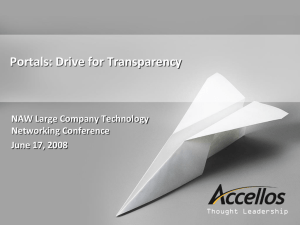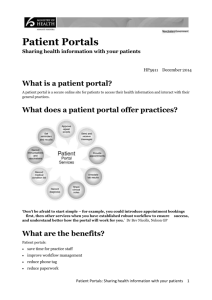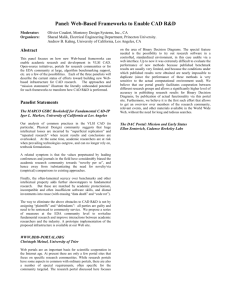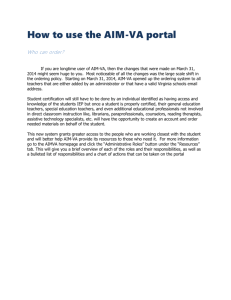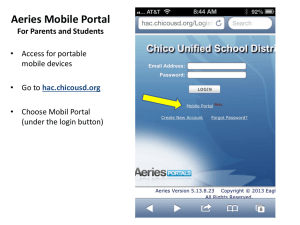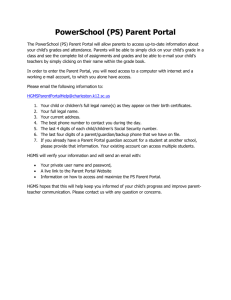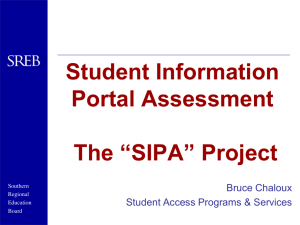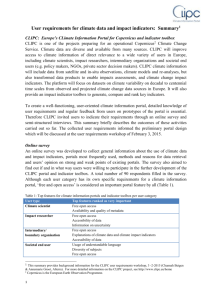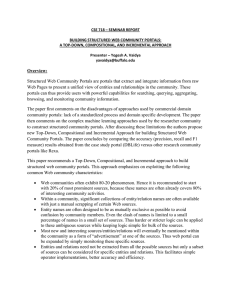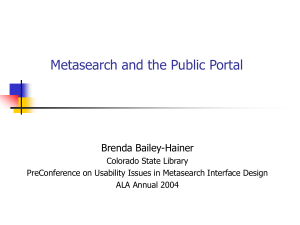Portal Computing for a Services-driven Network
advertisement
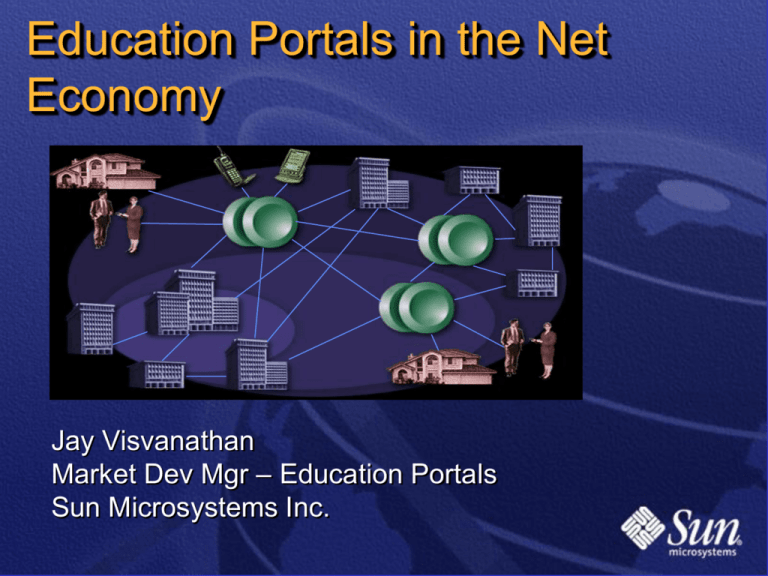
Education Portals in the Net Economy Jay Visvanathan Market Dev Mgr – Education Portals Sun Microsystems Inc. The $3 Trillion Market "Education over the Internet is going to be so big, it's going to make E-mail usage look like a rounding error” John Chambers, CEO Cisco Systems Inc. Internet + Education = Money 53 million students 50 million parents 3.1 million teachers 15000 school districts $360 Billion Market for K12 E for E-Schools $900 million investment in 60 companies in Q1 2000 Education in a Knowledge Economy Four year degree Forty-year degree Learner Mobility Distributed learning One-size fits all Tailored Programs Geographic Institutions Univ & Prof branding Just-in-Case Just-in-Time Source: Merrill Lynch Predictions for the Future Continuous real-time The .com Economy Massive Scale Integrate d Stack What Schools Need… Enable anytime, anywhere learning Emphasis on core competencies Easy to use computing model Affordable access to technology Zero administration at the school Reliability and constant availability New computing model for schools… The portal integrates all applications The browser is the only user interface needed Content, applications and infrastructure are outsourced to Service Providers The network webtone is managed by IT specialists The infrastructure is accessible anywhere, anytime! What is a Portal? The Portal Solution Can Be Broken into Three Functional Components Browser-Based, User Customizable Interface Aggregation of Information, Applications, and Services Portal Enabling Services Portal Computing Model Key Services Targeted Communities Aggregated for... Employee Content Communication Supplier Collaboration Commerce Partner Customer Care Customer Service Providers are Creating the Web Economy Online Services Supply Chain Enterprise Resource Planning Bandwidth ISP Portal NSP Customer Management CSP FSP ASP Web Marketing IPP Hosting Outsourcing Services Web Presence Components of Education Portals Content Admin Lib Inst Infrastructure Portal BROWSER ASPs: Like Timeshare only Better TIMESHARE ASPs Mainframe-centric Web-centric Leased lines Network Centric Purchase s/w model Office only access Subscription s/w model Anywhere, anytime access Evolving SP Business Model As margins on basic access plummet, SPs move up the food chain to hosting: Extranets -> Intranets -> POP3 mail -> secure mail -> VPNs -> VoIP -> voice mail Web sites -> storefronts -> e-commerce -> biz collaboration -> extended enterprise apps Computing infrastructure -> systems infrastructure -> application infrastructure -> Enterprise Application Integration Future success requires scale and/or solutions-oriented specialization. Education Portals – State of the Market Content is exploding Partnerships are pervasive Boundaries are blurring (work/learning/play) Revenue models are immature Standards are getting important Adoption rate in universities greater than K-12 Service Provider Market Predictions ASPs will move upstream to provide BPO services Fusion services will emerge (SI +Maintenance) ISVs will become ASPs ASP aggregators will emerge ASPs will emerge in e-marketplaces Education Portals: Examples Education Portal Examples Campus Pipeline Jones Knowledge Time Cruiser Blackboard Scientific Learning Banco Sanatander Horizon.com Tsinghua TongFang PowerSchool EduPrise Bibliotech Atmark Learning Beida Online Ambow FutureKids Wharton Wharton School: Research Service Provider Aggregation of market research information from various sources Access to a wide range of functionality from data access to complex financial modeling Existing C, Fortran or SAS programs can run on WRDS with little or no modification. Anywhere, anytime access via a browser Home School Banner Space Classes Clubs Tasks Calendar Contacts Messages Customizable Content Personalized, Current Information Horizon.com - Singapore Content repurposing and distribution via service provisioning 75 % of CD ROM market in Singapore 3-tier model to separate application, content and administration 100 schools in the next year Guidelines for Developing Education Portals #1 Form Follows Function #2 Ensure ease of use; simple interface #3 Plan for Scale #4 Plan for non-stop use #4 Customize for Communities… …Personalize for Individuals #5 Context is King Scalable Systems Datacenter.com Mainframe-class Servers Java Technology THE Network Is the computer TM Thin Clients NFS WebTone Intelligent Storage Jini
